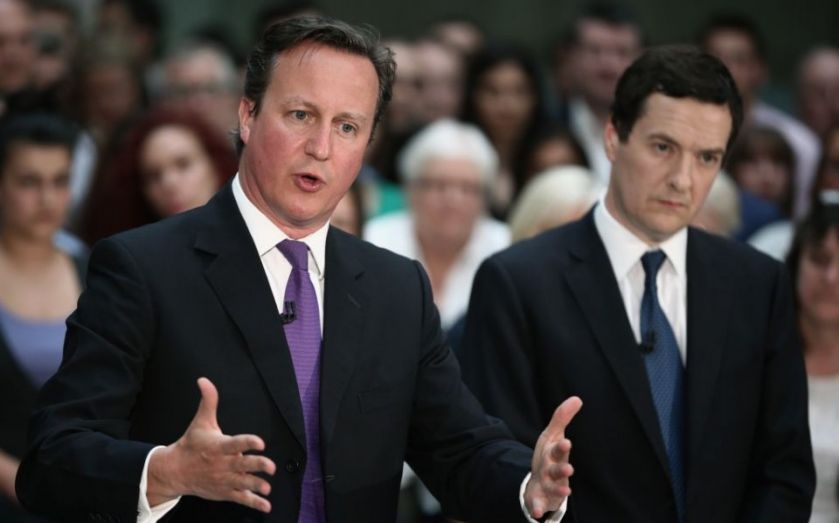Will a UK economic boomlet help swing the coming election for the Conservative Party?

Howard Archer, chief European and UK economist at IHS Global Insight, says Yes.
While the latest economic developments may not be enough in themselves to swing the election for the Conservatives, they should sway some voters at the polling booths.
The Tories can support their case that they are the best party to run the economy by pointing to its sustained healthy expansion since early 2013, record high employment and improving public finances. They will hope to benefit from markedly improving purchasing power coming from lower inflation (0.3 per cent in January) and annual average earnings growth (2.4 per cent in December). Indeed, purchasing power will likely improve further through to May, suggesting a growing inclusiveness of the recovery.
The Tories are vulnerable to the fact that there has been an extended squeeze on people’s purchasing power, but they can argue that the tough decisions that they took earlier are now bearing fruit and most people will be increasingly better off.
Tom Mludzinski, head of political polling at ComRes, says No.
Ronald Reagan famously suggested that the electorate ask themselves on election day “are you better off now than you were four years ago?” How voters feel – the money in their pocket – will always be a key factor in any election.
However, the current economic recovery is revealing a disconnect between “the economy” and “personal finances”. Seven in 10 Britons believe that, although the economy is getting better, their own personal finances are not. And herein lies the Conservatives’ biggest challenge: they have so far witnessed a voteless recovery. Their position in the polls has been stagnant for over a year.
Moreover, their biggest strength – economic credibility – will become less of an issue as the good economic news continues and voters turn their heads to immigration and the NHS, where the Tories’ position is weaker. David Cameron’s warnings of economic uncertainty were calculated, encouraging voters not to be economically complacent.